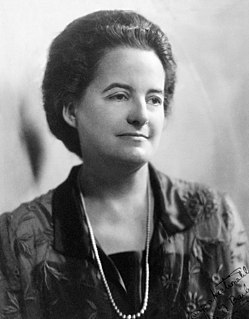A Quote by Patricia Churchland
When philosophers try to understand consciousness, much of what they claim is not conceptual analysis at all, though it may be shopped under that description.
Quote Topics
Related Quotes
The kind of approach I take is different from much of experimental philosophy. Although the experimental philosophers and I are certainly in agreement about the relevance of empirical work to philosophy, a good deal of their work is devoted to understanding features of our folk concepts, and in this respect, at least, I see them as making the same mistake as those armchair philosophers who are interested in conceptual analysis.
Even though artists of all kinds claim to put their hearts and souls into their works, it will only confuse you, for example, if you try to discern a painter by his paintings. His masterpiece may be the master because of its iridescence; it may display a hundred different perspectives through his single face.
The hermeneutic consciousness, which must be awakened and kept awake, recognized that in the age of science philosophy's claim of superiority has something chimerical and unreal about it. But though the will of man is more than ever intensifying its criticism of what has gone before to the point of becoming utopian or eschatological consciousness, the hermeneutic consciousness seeks to confront that will with something of the truth of remembrance: with what is still and ever again real.
What great philosophers do for us is not to hand out such an all-purpose system. It is to light up and clarify some special aspect of life, to supply conceptual tools which will do a certain necessary kind of work. Wide though that area of work may be, it is never the whole, and all ideas lose their proper power when they are used out of their appropriate context. That is why one great philosopher does not necessarily displace another, why there is room for all of them and a great many more whom we do not have yet.
The very nature of the quantum theory ... forces us to regard the space-time coordination and the claim of causality, the union of which characterizes the classical theories, as complementary but exclusive features of the description, symbolizing the idealization of observation and description, respectively.
Philosophers and psychologists have long puzzled over the question of how we know as much as we do despite our limited experiences. One way is to see how children learn. Another example is consciousness. The concept is usually explored by armchair academics. Looking at kids expands our conceptions of consciousness.
So much in writing depends on the superficiality of one's days. One may be preoccupied with shopping and income tax returns and chance conversations, but the stream of the unconscious continues to flow undisturbed, solving problems, planning ahead: one sits down sterile and dispirited at the desk, and suddenly the words come as though from the air: the situations that seemed blocked in a hopeless impasse move forward: the work has been done while one slept or shopped or talked with friends.
I suggest that just as self-consciousness is the goal for all the subhuman forms of life, and as group consciousness, or the consciousness of the Heavenly Man, is the goal for the human being, so for him, also, there may be a goal, and for him the achievement may be the development of God consciousness.






































